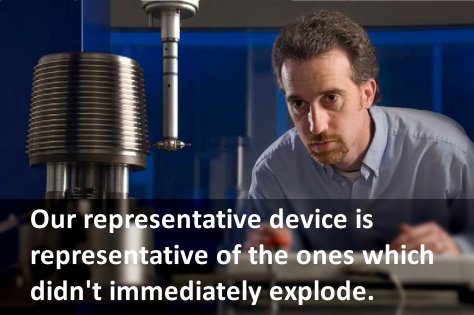
I don’t tweet. If you have been reading this blog for any length of time, you know why. I have a hard enough time constraining my writing to a few hundred words, much less 140 characters. Nevertheless, it is interesting to see how scientists use Twitter to communicate what they are doing. For example, I recently wrote about a particle physicist who used Twitter to explain to people what was happening in the Fukushima nuclear power plant disaster. He became a bit of a celebrity as a result and has used that platform to do some serious science related to the level of radioactive contamination in Japan’s food supply.
Why in the world am I discussing a social media tool that I don’t even use? Because a reader posted a link on my Facebook page. It contains a series of tweets posted with the hashtag #overlyhonestmethods, which was started by a scientist known as “dr. leigh.” The hashtag has become a bit of a phenomenon. Essentially, scientists use it to explain the real reasons behind some of their methods.
The picture at the top of the post is a classic example of a tweet that contains the hashtag. I immediately related to it, because as a nuclear chemist, I have built a lot of systems that blew up or failed in some other spectacular way. However, when I finally got a version of the system to work, I would refer to it as “representative.” That’s just the way it is done.
If you have some time, scroll through a few of the tweets. Some of the language can be a bit foul, but the tweets give you a brief glimpse into the real world of scientific research. You might be a bit surprised at what you read!

Here’s a compilation of the “best of” the overly honest metholdogies:
http://storify.com/BeckiePort/overlyhonestmethods
Some of my favorites:
I did it this way because it was the first thing that got me a result and now my funding has run out ….
Barbados was selected as a case study because the authors had a naive hope that it might justify some fieldwork there.
incubation lasted three days because this is how long the undergrad forgot the experiment in the fridge
http://www.livescience.com/40785-chemists-show-life-on-earth-was-not-a-fluke.html, care to give me your opinion on this? I am not entirely sure about their results. Based upon such statements in the past, I think that it is probably a sensationalist headline.
Thanks for the link, Eric. I had not seen that story. It’s definitely a sensationalist headline. They say that since 1 in 1,000 of their fatty membranes encapsulated all of the molecules needed for the assembly of the protein, that means there is something inevitable about life. However, it shows no such thing. What it shows is that there is some interaction between the fat molecules and the other molecules. Because of this interaction, the fatty membranes encapsulated more molecules than one would predict as a result of random chance.
It’s not clear what this experiment has to do with the origin of life. After all, it starts with DNA, and that’s the real problem. How does DNA form without the attendant proteins and enzymes it needs to form? This study tells us nothing about that. Also, most origin-of-life researchers have moved away from the “proteins first” model, which is what this study assumes. The reason they have moved away from the model is it has a host of seemingly insurmountable problems. Most origin-of-lie researcher talk about clays forming a template for life or life starting as RNA. In both cases, this study has no relevance.